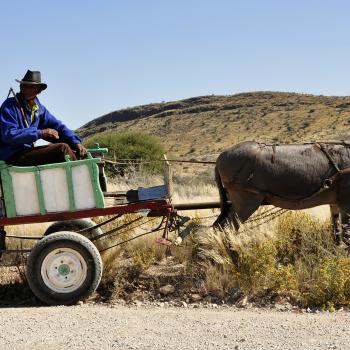We know that Clark has neighbors. There is the Vickers, who sold Clark and Missie a Christmas turkey from. There’s Jason Stern (Sally Anne’s suitor) and his parents. We heard briefly about Jedd Larson, whom Clark helped the first few days after Marty arrived. But we haven’t really met any of these various neighbors. The only neighbors who really seem to matter are the Grahams.
This week, that changes. Suddenly. Dramatically. I found it a bit odd that Oke chose to introduce all of these new characters, at once, nearly three-quarters of the way through the book.
A new baby gave the neighbor ladies a delightful excuse to put aside their daily duties and go calling. So it was in the weeks following the arrival of little Clare that Marty welcomed some of her neighbors whom she had not previously known, expect perhaps fleetingly as a face at Clem’s funeral.
I am curious whether this was actually a thing—the post-baby neighborly house visit. If it was, this seems dangerous to me. Most people even now don’t take their baby out to church or other social occasions in the first few weeks after they’re born—and we have modern medicine to help if our babies do get sick. They didn’t have that, back then. Then again, people did lots of crazy things before they knew about things like germs, so who the heck knows. This could well have totally been a thing.
The first to come to see Marty and the baby was Wanda Marshall.
Marty set aside the butter she was churning—
Marty does churn butter! What the heck! Why no mention of chores like this in her days and days of boredom, back when she was washing the curtains in order to make work for herself?!
—and welcomed her sincerely. “So glad thet ya dropped by.”
I’m still baffled at the fact that Marty has been here for over four months and the neighbors are only just now coming to meet her. New wife? Eh, same old same old. New baby? Oooo I want to see!!
Here is how Oke describes Wanda:
Small and young, with blond hair that at one time must have been very pretty, she had light blue eyes that somehow looked sad even when she smiled.
Can I just say how much I hate how hung up Oke is on how pretty or not everyone is? And if Wanda is “young”—which surely has to mean early twenties at the latest, given that Marty is just 19—why is her hair no longer pretty? Is it because she’s sad? Did her sadness change her hair?
Wanda gives Marty a present for the baby.
When Marty opened the package, she found a small bib, carefully stitched with embroidery so intricate she could scarcely understand how one could do such fine work. It looked delicate and dainty, like the giver, Marty thought. She thanked Wanda and exclaimed over the stitching, do which Wanda gave a slight shrug of her thin shoulders.
“I have nothing else to do.”
“Lan’ sake,” said Marty, “seems I never find time fer nuthin’ since young Clare came along. Even my evenin’s don’t give me much time fer jest relaxin’.”
Wanda doesn’t respond, because, as Oke will reveal in a moment, she doesn’t have any children. She hasn’t been able to, which is why she’s so sad. And bored, apparently.
Because on the frontier, if you don’t have children, there’s “nothing” to do. If you don’t have children, you’re forced to sit around bored, doing fancy stitching to pass the time. Except not, of course, because this is not how the frontier worked. Someone like Wanda, if her husband owns a farm or a ranch, would be responsible for running the household—a household that would likely include farmhands and perhaps an extra hired girl or two—whether or not she had children.
And then there’s the fact that children were expected to work. They were employed as farm labor. If you didn’t have some strapping young’uns, you had to hire extra hands. What kind of labor does Oke think these children were doing, if the only work to be done was childrearing? It’s mystifying.
Wanda asks to see the baby. Marty says he and Missie are both asleep, but that they can peak in quietly.
Wanda looked over at the sleeping Missie with her tousled curls and sleep-flushed cheeks. “She’s a pretty child, isn’t she?”
“Missie? Yeah, she be a dolly thet ‘un,” Marty said with feeling.
I’ll go ahead and remind you—Wanda and her husband are the couple that offered to take Missie in after Ellen died. Clark turned them down, because—Ma Graham said—he felt she needed her father, and he didn’t want to be parted from her. (None of which makes sense if he’s going to send Missie east with Marty come spring, of course.) So when Wanda is looking at Missie, she’s looking at the child she’d hoped she could have. A child she’d thought, at one point, might be hers.
Next, Marty and her guest turn to Clare.
Marty couldn’t help but think he looked beautiful, and she wondered that her visitor made no comment. When she looked up, it was to see her guest quickly leaving the bedroom.
Marty was mystified. Well, some folks you never could figure.
When she gets back out to the kitchen, Marty realizes that Wanda is struggling with tears. Marty stands in shocked silence while Wanda tries to explain.
“I’m sorry. I really am. I didn’t know it would be so hard. I mean, I had no idea I’d react so foolishly. I’d … I’d love to have a baby. My own, you know. Well, I did. I mean—that is, I have had babies of my own. Three, in fact, bu they’ve not lived—not any of them, two boys and one girl, and all of them…” Her voice trailed off; then her expression hardened. “It’s this wretched country!” she burst out. “If I’d stayed back east where I belong, things would have been different. I would have my family—my Jodi and Esther and Josiah. It’s this horrible place. Look … look what it did to you, too. Losing your husband having to marry a … a stranger in order to survive. It’s hateful, that’s what—just hateful!”
By now the young woman was weeping in broken, heartrending sobs.
Here is how Oke explains this outbreak:
This woman was battling with a sorry Marty had not faced—bitterness.
That’s—that’s great. Just great.
Marty tries comforting Wanda, sympathizing and putting her arm around her.
“It’s hard, it’s truly hard to be losin’ somethin’ thet ya wanted so much, but this I know, too—ya mustn’t be blaming the West fer it all. It could happen anywhere—anywhere. Womenfolk back east sometimes lose their young’uns too. Ya mustn’t hate this land. It’s a beautiful land.”
Seriously, Marty? This may be true, but it feels insensitive. Although I suppose it depends—if Wanda is blaming herself for coming west, it could be helpful to hear that she didn’t cause her babies’ deaths by choosing to move west. But that doesn’t seem to be where this is coming from. Marty railed against the west once, and then almost immediately concluded that it was too beautiful to hate. She seems to be defending the west more than anything else.
Some people went west, changed their minds, and went back east. That ought to be a valid path for Wanda. If she doesn’t like the west, she doesn’t have to like the west. Not everyone did.
Marty goes on:
“An’ you. Yer young an’ have yer life ahead of ya. Ya mustn’t let these tragedies bitter ya so. Don’t do a lick o’ good to be fightin’ the way things be, when there be nuthin’ a body can do to change ’em.”
Just how old is Wanda? Marty is only 19. If Wanda has already had three babies, she’s probably a few years older than Marty. Either way, Marty realizes how weird this situation is—Lan’ sakes, I didn’t know I could talk on so without stoppin’—and Wanda gradually calms in Marty’s arms.
“I’m sorry,” she said. “I’m very foolish, I know. You’re so kind and so brave…”
Cool.
Marty asks Wanda about her background. And guess what? Oke tells us more about Wanda’s background than she’s told us about Marty’s background in this entire book.
Marty learned that Wanda had been a “city girl,” well bred, well educated, and perhaps a bit spoiled, as well.
Can we have a sentence with the same info about Marty, please? Also, Wanda’s city girl status is (one can assume) the reason she (and only she) speaks with perfect diction.
Oh, and Marty does tell Wanda she shouldn’t give up on having children, that she’s still young, and that with a doctor coming to the town, “maybe with his help” things can be different for her.
Clare fusses and Marty brings him out, but, out of respect for Wanda, she keeps him fairly well hidden in his blanket while she nurses him.
Wanda talked on about having so little to do.
Seriously with this??
She did beautiful stitching, that Marty knew, but she didn’t have anyone to sew for. She didn’t quilt, she couldn’t knit or crochet, and she just hated to cook, so didn’t do any more of that than she had to. She loved to read but had read her few books so many times she practically could recite them, and she had no way of getting more.
Marty offered the practical suggestion that she could teach her to quilt, knit, or crochet if she cared to learn.
Is there any reason she can’t sew things for sale in town? Or maybe she could set up her home as a school house and offer lessons for the local children part of the year? But then, what am I saying—if she and her husband are running a farm, as we’re given to believe, she should not be bored.
After Clare finishes nursing, Wanda asks to hold him. She holds him and rocks him in the rocking chair as Missie comes out, having woken from his nap. The upshot of this is that Marty looks at Wanda, and looks at Clare and Missie, and muses on just how “lucky” she is.
And that’s the end of that visit.
Then Ma Graham comes, with a baby shawl she knitted. She brings her children too, to see the new baby, and I’m just—my god, the germs. Oh my gosh. Every one of her children takes a turn holding the baby—“even the boys, for they had been raised to consider babies as treasures indeed.” First, good god, children are individuals, not every child likes holding a baby. Second, the germs! Eesh!
The next day an ill-clad stranger, with two equally ill-clad little girls, appeared at Marty’s door. At Marty’s welcoming “Won’t ya come in,” the woman made no answer but pushed a hastily wrapped little bundle at Marty.
It’s a bib. But unlike the fancy one Wanda made, it’s made out of reworked material from old overalls. Question—if Wanda can afford material for fancy stitching, why can’t she afford new books? What did Oke mean that Wanda had “no way of getting more”? Clark bought new books!
Anyway, the woman and two girls come in “shyly, all three with downcast eyes and shuffling feet.”
“I don’t remember meeting’ ya afore,” Marty ventured.
“I be…” the woman mumbled, still not looking up. Marty didn’t catch if it was Rena or Tina or what it was, but she did make out Larson.
“Oh, ya be Mrs. Larson.”
The woman nodded, still staring at the floor.
“An’ yer two girls?”
The two referred to flushed deeply, looking as though they wished they could bury themselves in the folds of their mother’s wrinkled skirt.
“This be Nandry an’ this be Clae.”
Marty wasn’t sure she had heard it right but decided not to ask again.
Something is very, very wrong here. I just did some searching in a full copy of this series that I found on google books, and the only thing anyone ever accuses Jedd of being is a lazy drunk. But this feels like a lot more than that. I just completed a training for mandatory reporters, and this ticks a whole lot of boxes. And Tina—for that is her name—comes across like a woman experiencing domestic violence.
The trio look at the baby, eat the cookies Marty offers—it was so obvious they didn’t get cookies very often that Marty warped some up for them to take hime—and then leave “as silently as they had come.” On foot, by the way. Through the snow. In the cold wind. Without coats. Marty gets tears in her eyes as she watches them, and resolves to treasure the handmade bib they gave her.
Something about this section feels very real. Marty didn’t have anyone to make a report to, back then. And maybe she shouldn’t have anyway—the suggestion here seems to be that the only problem is poverty, although color me skeptical, how scared the three act. Tina doesn’t have access to food stamps or food banks or programs to cover the heating bill. Where I live, there’s a program to provide free coats and winter gear to children in low income families; Tina didn’t have that either. Nandry and Clae didn’t have access to a school where they might have eaten two meals a day, or school social workers who might have seen their need and connected their family with programs to help them.
But then I wonder—weren’t there supposed to be community efforts to help with this sort of thing, back in the day? Clark and Marty have so much. True, Clark helped Jedd get the crops in—but whatever happened to Marty’s old coat? It was worn and inadequate, but surely one more layer would help Mrs. Larson. Or quilts—Marty came with plenty already, and has made more since. Maybe should could sew a quilt for them? Ma Graham has plenty of time to stop by and visit with Marty, and teach her to cook and such—is Ma Graham also stopping by the Larsons’, with extra food and such?
I remembered from reading the books as a teen that Marty ends up raising Nandry and Clae, in the next book. I checked, and what happens is this: Tina falls ill, and despite the quilts and food Marty brings over, she dies. Fortunately, Marty was able to lead her in the sinner’s prayer first (Tina had said she was herself a “bad person” and that she was afraid to die). Tina gets Marty to promise to look after the girls, so when Jedd declares that he’s moving further west, Clark convinces him to leave the girls, then thirteen and eleven, with him and Marty to raise.
I’m annoyed with how all of this plays out. The girls aren’t able to get a good upbringing with Tina, even though she’s not portrayed as the problem. Instead, they have to be transferred to Marty’s care to get a good upbringing. Additionally, no one pushes back on Tina when she declares herself a bad person. Marty’s basically like, yes, that’s right, you are a bad person, but that’s okay because Jesus. But to me, Tina’s declaration that she’s a bad person is part and parcel of how Jedd has treated her.
Clark essentially tricks Jedd into leaving the girls with him and Marty—he tells Jedd that no pretty young woman will want to take on two half-grown girls, and Jedd, well—Jedd is not just headed further west, he’s also on the prowl for a new Mrs. Larson, ideally a young and pretty one.
I realize that at the time, child abuse was barely a concept, and there was little if any legal recourse for children who were being abused. However. Teetotalers connected alcohol use with domestic violence throughout the nineteenth century. It would have made sense for Oke to drop in here somewhere an indication that Jed doesn’t just neglect his family, he also abuses them. Why else are they quiet and shuffling, their eyes on the ground? Or are we to take it for granted that this is physical?
This entire subplot illustrates the importance of not relying on a patriarchal social system where men are expected to take care of their womenfolk. Among other things, this system relies on men actually doing this. There is little or no provision for intervention when men like Jedd do not. The girls’ rescue and new life with Marty and Clark is treated, in the next book, as a sort of salvation for them, but no one every fully grapples with what happened to Tina. Tina lost everything. And if Jedd had insisted on keeping the girls with him when he went out west, no one could have stopped him.
But enough of the Larsons, because we’re actually not done with the after-baby visiting!
Hildi Stern and Mrs. Watley came together. Hildi was a good-natured middle-aged lady. Not as wise as Ma Graham, Marty told herself, but a woman who would make a right fine neighbor.
Mrs. Watley—Marty didn’t hear her given name—was a rather stout, boisterous lady. She didn’t appear to be overly inclined to move about too much, and when Marty asked if they’d like to go to the bedroom for a peek at the baby, Mrs. Watley was quick with a suggestion. “Why don’t ya jest bring ‘im on out here, dear?”
They decided to wait until Clare finished his nap.
Hildi Stern, of course, would be Jason Stern’s mother. She brought a hand-knit swather, and Mrs. Watley brought another bib, “well sewn and as simple and unfussy as it could be.”
When they had finished their coffee, Mrs. Watley, looking like she enjoyed her several helpings of cookies and loaf cake, exclaimed what a grand little cook Marty was.
How very patronizing.
Also, do we really need to be hit over the head with Mrs. Watley’s weight? Jeepers. Oh, gracious—when it’s time to leave, Mrs. Watley tells Hildi Stern to “run along an’ git the team, dear, an’ I’ll be a meetin’ ya at the door.” Thanks for the hammer, there, Oke. (Also, I’m super confused as to why these two came together, and what their relation is—is Mrs. Watley possibly Hildi Stern’s mother, maybe? Although I didn’t think she was quite that old. Why are they hear together?)
Guess what? We’re still not done! Now it’s Mrs. Vickers turn.
She had her boy, Shem, drive her over and sent him on to the barn with the horses while she came bustling up the walk, talking even before Marty got to the door to open it.
I feel like most of these are type pieces. There’s Wanda, young and sort of pretty but also childless and bitter. There’s Tina, withdrawn and shy and unsure of herself. There’s Mrs. Watley, who is overweight, sedentary, and focused on food. And now there’s Mrs. Vickers, the community busy body.
I won’t make you read all her talk, but it’s pretty much nonstop.
“My, my, ain’t ya jest the lucky ‘un—nice little place here. Sure beats thet covered wagon ya was livin’ in. Not many women hereabout have a home nice as this, an’ ya jest gettin’ it all handed to ya like. Well, let’s see thet young’un.”
You see what I mean.
She settled herself on a kitchen chair and let her tongue slide over her lips as though adding oil to the machinery so it would run smoothly.
I … what.
I got nothing.
“Jedd Larson be nothin’ but one lazy good-fer-nothin’, al’ays gettin’ started when ever’one else be done—‘ceptin’ when it come to eatin’ or drinkin’ or raisin’ young’uns—they been married fer ten years—already had ’em eight young’uns—only three thet lived, though—buried five—his missus—so ashamed an’ mousy like—wouldn’t no one ’round even bother to go near—“
What the ever-loving heck. Is Ma Graham shunning the Larsons? Surely, if she’s so quick to take Marty under her arm, she ought to be doing something for poor Tina Larson. Also, three kids lived? Are we supposed to assume Mrs. Vickers is uninformed as to that? There are only two Larson kids.
Marty made herself a promise that come nice weather she’d pay a call on Mrs. Larson.
Marty is good people.
“Thet Graham clan—did ya ever see so many kids in the self-same family? Almost an insult to humans, thet’s what it be—bad as cats ore mice—havin’ a whole litter like thet—“
Wait, what now? Did people actually talk about large families like this back then, when large families were so much more common?
Okay, I know I said I wouldn’t subject you to all of Mrs. Vickers’ gossip. I lied. I really do have to share just about all of this.
“See’d thet young Miz Marshall yet? I declare me—thet young prissy woulda been better off to stay her back east where she be belongin’—her an’ her first-class airs—an’ not even able to raise her a young’un—woman’s got no business bein’ out west if she can’t raise a young’un—an’ confident like—I think there be somethin’ funny there—hard to put yer finger on—but there all the same—doesn’t even give ya a proper welcome when ya call—me, I called, neighbor like, when each of her young’uns died—told her right out what she probably be a doin’ wrong—well, ya know what—she most turned her back on me—“
Marty is, of course, properly shocked at all of Mrs. Vickers’ chatter, though she doesn’t stop her. Instead, she tries very hard to hold her tongue.
“Have Hildi and Maude been over? I see’d ’em go by t’other day—goin’ over to see thet new young’un of the Davises, I says to myself—well, Hildi be a fine neighbor—though she do have some strange quirks—me, I’m not one to be a mentioning ’em. Maud Watley, now—theyt be another matter—wouldn’t do nothin’ thet took any effort, thet one—she wasn’t always big as the West itself—be there a time afore she catches her man thet she be a dance-hall girl—she wouldn’t want one knowin’ it o’ course—but it be so—have ya been to town yet?”
Finally! A reasonable question!
“Well, mind ya, when ya do go, don’t ya be tellin’ nuthin’ to thet there Miz McDonald thet ya don’t want spread ’round thin like. She be a first-rate tongue wagger, thet un.”
Lord.
Oh jeez. And she goes on. A Miz Standen who lives in town has “a Saturday beau.” Mrs. Vickers is suspicious that the visiting preacher has “somethin’ to hide” or else he’d settle down in one place. The Krafts—who knows where they live—are expecting a fifth child.
And then there’s this:
“Milt Conners, the bachelor of the area, seems to be gettin’ stranger ever’day. Should git ‘im a woman—thet would be doin’ him some good—he’s gettin’ liquor somewhere, too—nobody knows where, but I do have my s’picions.”
Milt Conners will become more important in a bit.
And on and on she went, like a walking newspaper.
When Mrs. Vickers finally leaves, Marty realizes she never actually saw the baby.
I found this chapter way more interesting than many of the previous ones, though again, I’m unsure as to why these visits happened now, and not earlier, when Marty first arrived. Placing them earlier could have been just as interesting, if not more so. Perhaps Marty might have bonded with Wanda, in their shared grief and anger at the west, only to realize, when seeing Wanda again after Clare is born, that she has actually become quite happy in her new life—this realization could then lead to her wrestling with her upcoming decision over whether to head back east or not.
Instead, we don’t meet any of these people—except Ma Graham—until now. But hey! Now we know the neighborhood!
I have a Patreon! Please support my writing!











